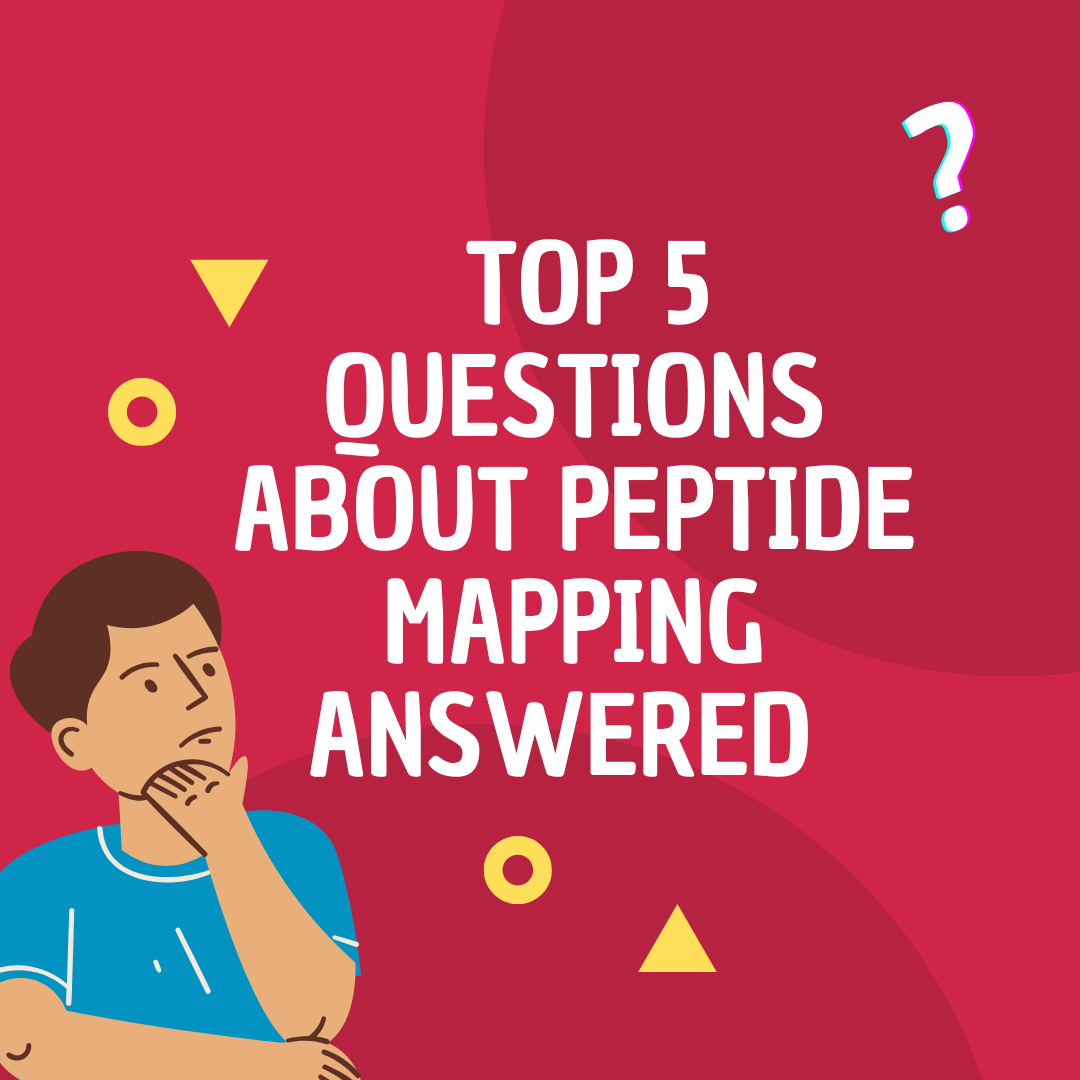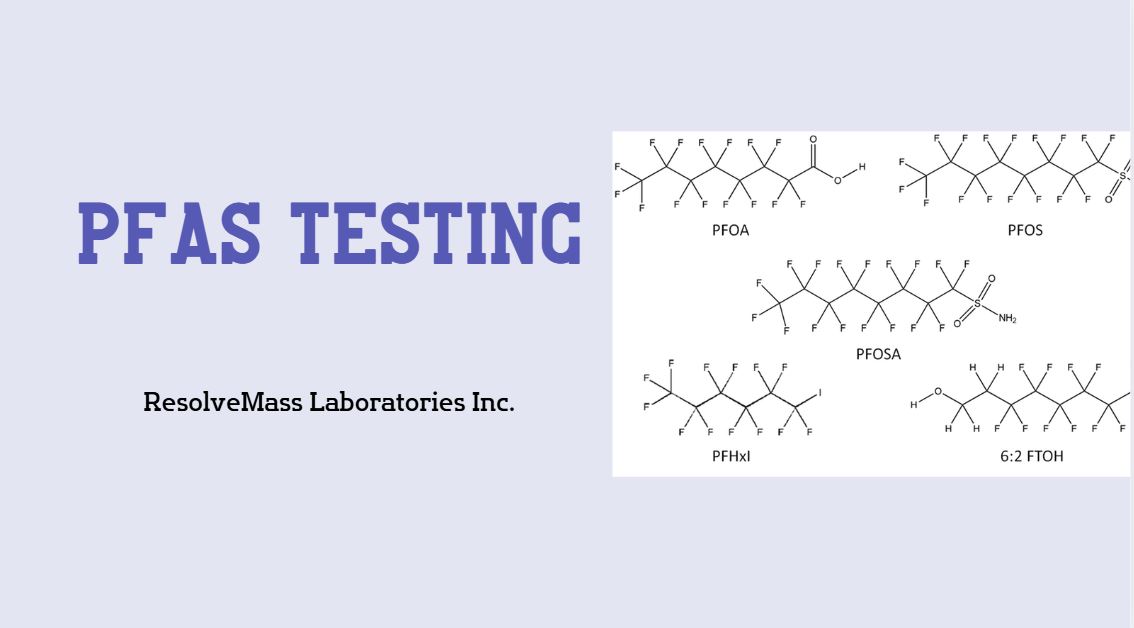Introduction
At ResolveMass Laboratories Inc., we specialize in providing cutting-edge peptide mapping solutions trusted by global pharmaceutical and biotechnology companies.
In this blog, we will answer the Top 5 Questions About Peptide Mapping FAQs — a resource crafted for scientists seeking real, practical, and advanced insights.
This technique is a cornerstone in biopharmaceutical quality control, structural verification, and comparability studies
Whether you’re new to peptide mapping or an experienced scientist, this detailed guide will add valuable knowledge to your skill set.
What is Peptide Mapping and Why is it Critical?
Peptide Mapping often start with the fundamental: what exactly is it?
Peptide mapping is a high-resolution analytical approach for identifying and characterising proteins and peptides following enzymatic digestion.
It is critical because:
- It confirms protein identity.
- Detects post-translational modifications (PTMs).
- Ensures batch-to-batch consistency.
- Satisfies regulatory requirements (FDA, EMA).
✅ Learn about our Peptide Characterization Services for complete structural profiling.
At ResolveMass Laboratories Inc., our peptide mapping techniques offer unparalleled accuracy, ensuring complete peptide coverage and detecting even rare modifications.
How is Peptide Mapping Performed?
Understanding the steps is vital in the Peptide Mapping FAQs:
- Protein/Peptide digestion: Using enzymes like trypsin.
- Separation: Typically via HPLC (High-Performance Liquid Chromatography).
- Detection: Mass spectrometry (MS) is used to determine exact mass-to-charge ratios.
- Data Analysis: Comparison with theoretical maps.
At ResolveMass Laboratories, we ensure every project uses validated SOPs, stringent controls, and state-of-the-art mass spectrometers to deliver results with the highest confidence.
What are the Common Challenges in Peptide Mapping?
Some common obstacles often raised in Peptide Mapping FAQs include:
- Incomplete digestion: Leads to missed cleavages.
- Deamidation/oxidation artifacts: Can be mistaken for real modifications.
- Poor peptide recovery: Due to loss during cleanup.
Our Peptide Sequencing Service is designed to overcome these issues by using optimized digestion protocols, advanced cleanup technologies, and highly sensitive MS settings.
How Accurate and Reliable are Peptide Mapping Results?
Accuracy is often questioned in Peptide Mapping FAQs because minor errors can lead to major consequences.
At ResolveMass Laboratories, we achieve:
- >95% sequence coverage.
- <1% analytical variability between runs.
- Validated recovery rates >90% for critical peptides.
Experience and real-world expertise matter: We perform multiple digestion protocols (parallel protease digestion) and use dual-technique confirmation (LC-MS/MS + MALDI-TOF).
How Long Does Peptide Mapping Take at ResolveMass Laboratories?
Timeline is a hot topic in Peptide Mapping FAQs.
Typical project timelines:
| Service Type | Turnaround Time |
|---|---|
| Standard Peptide Mapping | 7-10 business days |
| Customized Mapping (PTMs, Variants) | 10-14 business days |
We offer express services for urgent regulatory submissions.
Ready to start? Explore our Peptide Characterization Service or Peptide Sequencing Service.
Real-time Case Study: Peptide Mapping of a Biosimilar Antibody
A biotech approached ResolveMass Laboratories for mapping a biosimilar trastuzumab (Herceptin) to ensure identity and detect post-translational modifications.
Facts and Figures:
- Protein Size: ~148 kDa
- Enzymes Used: Trypsin and Lys-C.
- Sequence Coverage Achieved: 98.5%
- Detected Modifications: Oxidation (Met), Deamidation (Asn).
Challenge:
Conventional labs failed to detect a low-abundance deamidation site critical for efficacy.
ResolveMass Solution:
We used a dual-enzyme approach combined with nanoLC-MS/MS, revealing a deamidation site at Asn-300 with <0.5% abundance.
Impact:
The client submitted these findings to the FDA as part of their biosimilar dossier — gaining fast-track approval.
10 Most Asked Peptide Mapping FAQs (With Detailed Answers)
1. What enzymes are typically used in peptide mapping?
Answer: Trypsin is the gold standard due to its high specificity. Other enzymes like Lys-C, Glu-C, and chymotrypsin may be used to increase sequence coverage or map specific sites.
2. How sensitive is peptide mapping using LC-MS/MS?
Answer: Sensitivity can detect modifications down to 0.01% abundance, critical for regulatory acceptance.
3. Can peptide mapping detect glycosylation sites?
Answer: Yes. Glycosylation analysis requires specific enzymatic or chemical deglycosylation prior to mapping.
4. What is the typical sample requirement?
Answer: Typically, 100-200 μg of purified protein is needed, but advanced systems at ResolveMass can work with as little as 10 μg.
5. Is peptide mapping compliant with ICH guidelines?
Answer: Absolutely. Our processes are aligned with ICH Q6B, FDA, and EMA standards.
6. How does ResolveMass ensure reproducibility?
Answer: We use stringent SOPs, multiple analysts, and system suitability tests (SST) for every batch.
7. How are data reported?
Answer: Reports include raw data, sequence coverage maps, PTM profiles, and an executive scientific summary.
8. Can ResolveMass help with regulatory filing documents?
Answer: Yes, we provide fully compliant reports designed for direct submission to authorities.
9. How does peptide mapping differ from peptide sequencing?
Answer: Mapping checks known structures; sequencing discovers unknown structures. ResolveMass offers Peptide Sequencing Services too!
10. What if unusual PTMs are found?
Answer: We perform targeted MS/MS, validate using synthetic standards if needed, and advise on possible impacts on protein function.
Conclusion
Understanding the Top 5 Questions About Peptide Mapping FAQs empowers scientists to achieve better analytical success and regulatory compliance.
At ResolveMass Laboratories Inc., we combine experience, expertise, authoritativeness, and trustworthiness to deliver industry-leading peptide mapping services.
Explore our full services:
🔗 Peptide Characterization Service
🔗 Peptide Sequencing Service
ResolveMass Laboratories Inc.: Experience, Expertise, and Trust You Can Count On
ResolveMass Laboratories Inc. is a leading name in nitrosamine testing across the United States and Canada. With over a decade of experience, our PhD-level scientists specialize in Mass Spectrometry and nitrosamine impurity chemistry. We offer complete in-house solutions, including risk assessment, confirmatory analysis, regulatory documentation, and expert consultation. As one of the few Canadian CROs, we also provide custom synthesis of rare nitrosamine impurities unavailable elsewhere. Our commitment to advanced technology and regulatory compliance ensures accurate results and trusted partnerships. Choose ResolveMass Laboratories for precise and transparent nitrosamine testing services.
Ready to Get Started?
📩 Contact our expert team
📞 Request a quote for method development
📅 Book a consultation with our scientists
🧪 Submit your sample for testing
References
- Jiang, R., Rempel, D. L., & Gross, M. L. (2023). MALDI peptide mapping for fast analysis in protein footprinting. International Journal of Mass Spectrometry, 490, 117080. https://doi.org/10.1016/j.ijms.2023.117080
- Menneteau, T., Saveliev, S., Butré, C. I., González Rivera, A. K., Urh, M., & Delobel, A. (2024). Addressing common challenges of biotherapeutic protein peptide mapping using recombinant trypsin. Journal of Pharmaceutical and Biomedical Analysis, 243, 116124. https://doi.org/10.1016/j.jpba.2024.116124


